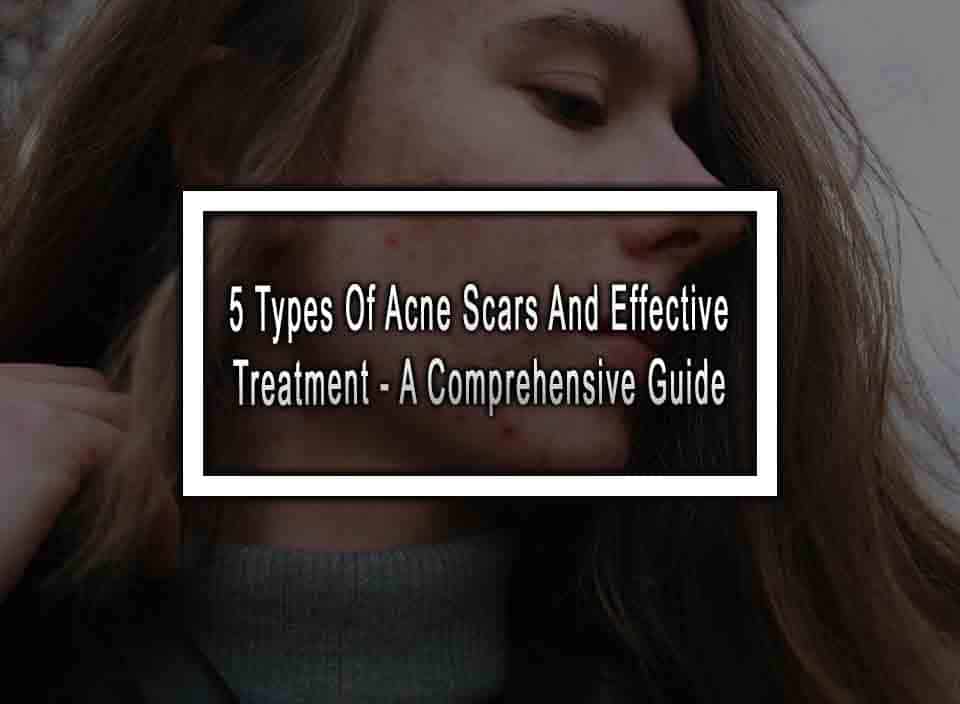Table of Contents
ToggleDiscover the Many Faces of Acne Scars
Acne is a common skin condition that affects millions of people worldwide. While pimples may come and go, they sometimes leave a lasting impression in the form of acne scars. These scars can vary in appearance and severity, causing distress and self-consciousness. Fortunately, with the advancements in dermatology, there are various treatments available to minimize and even eliminate acne scars. In this article, we will explore the different types of acne scars and the most effective treatments for each.
1. Atrophic Scars
Atrophic scars are depressions or indentations in the skin caused by the loss of tissue during the healing process. This type of scar is further classified into three subtypes: ice pick scars, boxcar scars, and rolling scars. Each requires a specific treatment approach, such as laser therapy, microneedling, or dermal fillers.
2. Hypertrophic and Keloid Scars
In contrast to atrophic scars, hypertrophic and keloid scars result from excess collagen formation during the healing process. These scars appear raised, firm, and sometimes itchy. Treatment options include corticosteroid injections, silicone sheets, cryotherapy, and laser therapy.
3. Post-Inflammatory Hyperpigmentation (PIH)
PIH refers to dark pigmentation that remains after acne inflammation has resolved. Although not true scars, PIH can still impact one’s appearance and self-esteem. Treatments for PIH include topical creams, chemical peels, and intense pulsed light (IPL) therapy.
4. Rolling Scars
Rolling scars are broad depressions with a wave-like texture on the skin’s surface. They often result from damage to deeper layers of the skin, causing tethering to the underlying tissue. Effective treatments for rolling scars include subcision, microneedling, and dermal fillers.
5. Boxcar Scars
Boxcar scars are characterized by sharply defined, angular depressions on the skin’s surface. They can be shallow or deep, and treatment options include chemical peels, fractional laser resurfacing, and dermal fillers.
Conclusion
Acne scars can be a source of frustration and self-consciousness, but they no longer have to be a permanent reminder. With advancements in dermatological treatments, there are numerous options available to target specific types of acne scars. Whether you’re dealing with atrophic scars, hypertrophic scars, PIH, rolling scars, or boxcar scars, personalized treatment plans can help restore your skin’s smoothness and even tone. Don’t let acne scars hold you back any longer – consult with a dermatologist to find the best solution for your unique needs and say hello to a confident, scar-free complexion.
Acne Scars FAQ
Here are the most common questions about acne scars.
1. How long does it take to see results from acne scar treatments?
The timeframe for seeing results varies depending on the treatment used and the individual. Some treatments may show improvement in a few weeks, while others may take several months before noticeable changes occur.
2. Can natural remedies help to reduce acne scars?
Some natural remedies, such as aloe vera gel, honey, and lemon juice, may help to lighten or reduce the appearance of acne scars. However, the effectiveness of these remedies varies, and it is best to consult with a dermatologist for professional advice.
3. Can acne scars be completely removed?
While it may not be possible to completely remove all acne scars, significant improvement can be achieved with the appropriate treatments. The goal is to minimize the appearance of scars and improve overall skin texture.
4. Can acne scars reappear after treatment?
In some cases, acne scars can reappear after treatment, especially if the underlying cause of acne is not addressed. Maintaining a good skincare routine and managing acne flare-ups can help prevent new scars from forming.
5. Can acne scars be prevented?
Preventing acne scars involves properly treating and managing acne breakouts. This includes using non-comedogenic skincare products, avoiding picking or popping pimples, and seeking professional treatment for severe acne.












